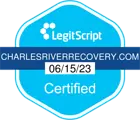Alcohol misuse is a major problem in the United States and worldwide, and many people choose to self-detox from alcohol at home. While this may seem like an effortless way to address alcoholism, the dangers of at-home alcohol detox can be serious and potentially life-threatening.
At-home alcohol detox has several serious risks associated with it. Some of these risks include dehydration, electrolyte imbalance, and physical complications related to withdrawal, like seizures, heart arrhythmias, and even death. Additionally, a lack of professional medical support means that any mental or physical health issues that develop during detox could go unnoticed or unaddressed.
The most effective way to detox from alcohol is at a medically supervised inpatient detox facility. Inpatient detox centers provide medical professionals who monitor vital signs, provide necessary medications and nutritional supplements, and can address any mental or physical health issues that develop during the detox process. Trained medical staff can provide psychological support and referrals to long-term addiction treatment programs.
Why At-Home Alcohol Detox Is Risky
At-home alcohol detox is dangerous and should not be attempted without medical supervision and oversight. Without the assistance of a trained medical professional, serious and often life-threatening side effects can occur, including seizures, dehydration, hallucinations, and even death.
While detoxing at home, there is often an increased risk of relapse due to the lack of structure and support provided by a medical professional.
Detoxing from alcohol at home also carries a greater risk of experiencing a seizure from alcohol withdrawal or a more serious complication known as delirium tremens.
What are Delirium Tremens?
Delirium tremens is a severe form of alcohol withdrawal syndrome, and it can cause extremely high fever, seizures, confusion, and other life-threatening symptoms. Without the proper medical care, it can be extremely difficult to detox from alcohol at home successfully, and in some cases, it can be fatal.
Alcohol Withdrawal Syndrome
At-home alcohol detox is a risky and potentially dangerous form of alcohol withdrawal treatment. The body is going through a dramatic and rapid change as it adjusts to the sudden lack of alcohol,can cause severe withdrawal symptoms and even lead to death.
Symptoms of alcohol withdrawal syndrome (AWS) include anxiety, irritability, tremor, insomnia, nausea, vomiting, and seizures. These symptoms can become life-threatening as the body cannot adjust to the sudden lack of alcohol.
For these reasons, it is important to seek professional help for alcohol withdrawal. A team of medical professionals will be able to provide the necessary structure and support needed to manage withdrawal symptoms and provide treatments to reduce cravings. They can also coordinate referrals to long-term addiction treatment programs as necessary to help individuals safely and successfully recover from their addiction.
Alcohol Detox Programs
When seeking treatment for alcoholism, understanding the risks and benefits of both at-home alcohol detox and alcohol detox programs is essential.
At-home alcohol detox can be dangerous as it is difficult to monitor progress, and medical assistance may not be easily available if complications occur, unless it is closely monitored by a medical doctor or in-home nurse. At-home detox does not provide the same level of structure, monitoring, and support as an alcohol detox program or treatment facility.
Alcohol detox programs and treatment facilities provide the structure, monitoring, and support that is necessary for a successful and long-lasting recovery from alcohol addiction. Typically, these programs, such as Charles River Recovery’s program, have a multi-faceted approach to detox, which includes medical assistance, individual and group therapy, medication, and peer support. Trained professionals provide assistance in managing withdrawal symptoms, provide psychological support, and help to prevent serious complications.
Inpatient Treatment
At-home alcohol detox and inpatient treatment programs are two different approaches to treating Alcohol Use Disorder. Although both approaches can be effective in helping a person manage and treat alcohol addiction, there are certain risks and benefits associated with each option. At-home detox programs typically allow a person to administer their detoxification process, while inpatient treatment programs offer a higher level of medical monitoring and assistance in the detoxification process.
Inpatient treatment programs offer a much higher level of medical supervision and support, as well as access to therapies, activities, and other resources to assist in recovery. This type of program also eliminates the risk of relapse due to a lack of support and structure.
However, there are some costs associated with inpatient treatment programs, such as the cost of travel, lodging, and treatment. Leaving one’s home and familiar surroundings can be a difficult transition, and the cost of treatment may be a barrier for some individuals. But ultimately, the increased success rates of those who seek out proper inpatient care is worth it.
Physical and Mental Health Risks with at-home Alcohol Detox
At-home alcohol detox can seem like a quick and easy solution for those dealing with an Alcohol Use Disorder. Unfortunately, the lack of medical supervision and lack of access to professional addiction treatment can be extremely dangerous, and even life-threatening. The physical and mental health risks of an at-home alcohol detox can be severe, including potential death or injury, serious withdrawal symptoms, and an increased risk of relapse.
Withdrawal Symptoms
The first and most dangerous risk of attempting an at-home alcohol detox is the potential of serious, life-threatening withdrawal symptoms. Alcohol withdrawal can range from mild to severe and can include symptoms such as nausea, irregular heartbeat, increased blood pressure, confusion, tremors, and even seizures.
Without the proper medical supervision, these symptoms can quickly become life-threatening. In addition, there is also the risk of serious injury or death due to the effects of alcohol withdrawal, such as dehydration or alcohol poisoning.
Increase Chance of Relapse
Another risk associated with attempting an at-home alcohol detox is the risk of relapse. Without access to professional addiction treatment and the support and guidance of trained addiction specialists, it can be difficult for individuals to recover from their addiction fully.
Without access to medically-supervised detoxification and therapy, those attempting an at-home alcohol detox may be more likely to relapse due to the psychological and physical cravings for alcohol.
Contact Us
At-home alcohol detox is not a safe or effective option for those dealing with an Alcohol Use Disorder. The physical and mental health risks of attempting an at-home alcohol detox can be severe and even life-threatening. Those looking to safely recover from alcohol addiction should seek professional medical assistance to ensure the safest and most effective outcome.
Charles River Recovery’s convenient location allows us to offer individualized addiction treatment to clients all over Massachusetts. Our expert licensed staff are invested in your specific needs and are committed to placing you in the most appropriate level of inpatient care.
If you or your loved one is suffering from drug or alcohol dependency, look no further than Charles River Recovery’s effective and proven evidence and medical-based treatment programs.






